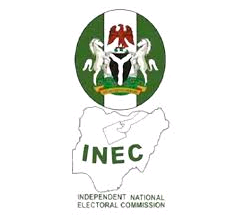
The Chairman of Presidential Committee on Fiscal Policy and Tax Reforms, Mr. Taiwo Oyedele has highlighted the significance of the tax reform bills, including simplifying tax system and improving business competitiveness in the country.
The bills passed the second reading in the National Assembly some days ago and thereafter sent to the Committee on Finance for further legislative review.
Elucidating on the bills on Tuesday, Mr. Oyedele described the bills as “the people’s tax bills”, explaining that they are aimed at economic transformation to empower Nigerians and facilitate inclusive economic growth.
“The bills are the Nigeria Tax Bill – harmonises all the major taxes such as corporate income tax, personal income tax, VAT etc, Nigeria Tax Administration Bill – provides a framework for tax management covering taxpayer identification, registration, assessment, collection, enforcement, etc.
“Nigeria Revenue Service (Establishment) Bill – seeks to replace the FIRS with the NRS to perform a broader role of revenue administration in Nigeria and drive collaboration with subnational governments and MDAs. Joint Revenue Board (Establishment) Bill – to transform the JTB to JRB with an expanded mandate and enhanced role for cooperation and tax harmonisation. The bill also sets up the office of the tax ombudsman to protect taxpayers and advocate for tax simplification,” he explained.
According to him, the bills altogether, offer a comprehensive overhaul of the nation’s tax framework to drive economic growth, support Nigerian households, and position the country as a competitive economy within the comity of nations.
The accountant stated that the reforms reflect a commitment to equity, efficiency, and sustainable development and noted the key highlights of the bills which include:
“Empowering the Youths with Digital Economy Opportunities: Changes to income tax laws that will attract remote work opportunities in the global business process outsourcing (BPO) sector, enabling Nigerian youths to thrive in the digital economy.
“Boosting Exports: Goods, services, and intellectual property exports will benefit from zero-rated VAT and other incentives to enhance Nigeria’s global trade competitiveness. Support for Small Businesses: Tax exemptions, including 0% corporate income tax, VAT, and withholding tax, will apply to small businesses with annual turnover of ₦50 million or less.
“Relief for Workers and Households: Minimum wage earners will be exempt from PAYE (personal income tax), while over 90% of workers across the private and public sectors will see a reduced tax burden. Essential items such as food, education, healthcare will enjoy 0% VAT while rent, public transportation, and renewable energy will be exempted, providing relief for low-income households that spend nearly 100% of their income on these necessities.
“Simplifying and Rationalising Taxes: Over 50 nuisance taxes are to be repealed, with remaining levies harmonised into a few number of taxes. Corporate income tax rates will reduce from 30% to 25% over the next two years, and earmarked taxes on companies will be replaced with a streamlined single levy.
“Enhancing Business Competitiveness: Businesses will benefit from input VAT credits on assets and services, eliminating the minimum tax on loss-making and low-margin companies. This will lower production costs and stimulate investment.”
Others are “Fairer Tax System for All: A redesigned tax framework will ensure progressive personal income tax, VAT, and capital gains tax while safeguarding low-income earners. Taxes on foreign currency-denominated transactions will be payable in naira, easing compliance for businesses and reducing pressure on the exchange rate.
“Equity Among States: VAT revenue will be distributed among states based on an equitable model to reward economic contributions, rather than the current model which is skewed in favour of states with head office locations where VAT remittances are usually made.
“Taxpayer Advocacy and Transparency: The introduction of Tax Ombudsman to improve the tax system by protecting vulnerable taxpayers and advocating for fairness. A New National Fiscal Policy: A strategic framework for fair taxation, responsible borrowing, and sustainable spending will be established to guide the fiscal system.”
Oyedele emphasised that the tax reforms aim to alleviate the rising cost of living, foster economic equity, and create a business-friendly environment to attract local and foreign investments.
“All tiers and arms of government are committed to driving inclusive growth and ensuring that all Nigerians benefit from a prosperous economy,” he added.







